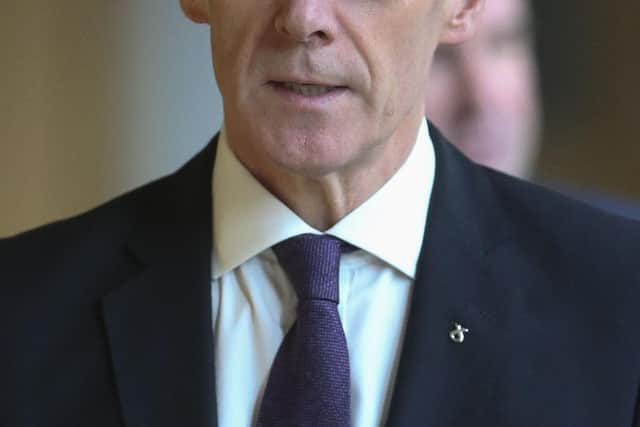Concern over employers claiming staff as 'key workers' for school places
and live on Freeview channel 276
Only vulnerable pupils and children of key workers are now allowed to go to school, with remote learning provided for everyone else at home.
But experience south of the border shows far more pupils going to school than during the first lockdown in March and there are fears the same will happen in Scotland when term starts tomorrow.
Advertisement
Hide AdAdvertisement
Hide AdMr Swinney said the definition of “key worker” was the same as it had been at the start of the pandemic in March.


He said: “There are three categories – frontline health and social care workers dealing the with pandemic, wider emergency service workers upon whom we rely and individuals who are critical to the sustainable delivery of the Scottish economy and Scottish public services.”
But he added: “I spoke to about 800 headteachers on Friday and I was concerned, listening to a number of those headteachers, about some of the arguments being put forward by employers about the criticality of the role of some of their employees and that is resulting in mdore pupils presenting to be involved in school-based education in the period ahead.
“We have to monitor that very carefully and I do look to employers to think very carefully about whether it is a requirement for individuals to be reporting to an office or a business venue rather than working from home.”
Advertisement
Hide AdAdvertisement
Hide AdA survey of primary schools in England found one in six had 30 per cent or more of pupils attending despite the lockdown and there were reports that some had about half the normal numbers.
Rebecca Allen, a professor of education at the University of Brighton said: "The much higher number of children attending primary schools each day during this lockdown will make it more difficult to reduce the rate of transmission. This, in turn, may mean that schools will need to stay closed for longer, thus delaying the speed with which we can get other children back to school."
A message from the Editor:
Thank you for reading this article. We're more reliant on your support than ever as the shift in consumer habits brought about by coronavirus impacts our advertisers.
If you haven't already, please consider supporting our trusted, fact-checked journalism by taking out a digital subscription.
Comment Guidelines
National World encourages reader discussion on our stories. User feedback, insights and back-and-forth exchanges add a rich layer of context to reporting. Please review our Community Guidelines before commenting.